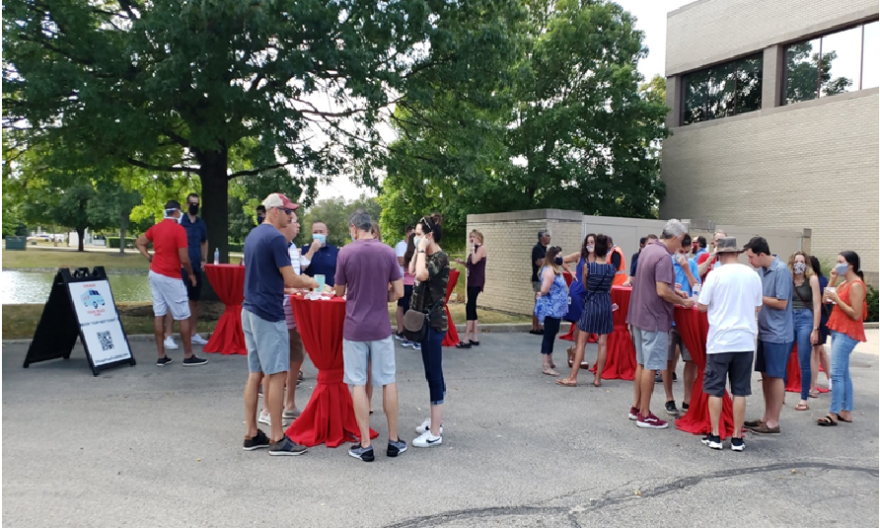
Chicago, famously known as the Windy City, is not just a hub of culture and commerce but also a vibrant center for events of all kinds. Whether you’re planning a corporate gathering, a social celebration, a wedding, or a conference, Chicago offers a myriad of options to suit every need and preference. However, diving into event planning can seem daunting without a clear roadmap. This guide aims to simplify the process, helping you navigate from the initial stages of conceptualization to the successful execution of your event.
Understanding Your Event Needs
Before embarking on the journey of event planning, it’s crucial to define your event’s purpose and objectives. Are you aiming to create a networking opportunity for professionals, celebrate a milestone, educate attendees, or simply entertain? Each type of event comes with its own set of requirements, from the ambiance and venue to the catering and logistical arrangements. Understanding these needs upfront will guide every subsequent decision you make.
Choosing the Right Venue
Selecting the perfect venue is perhaps the most critical decision in event planning. Chicago offers a diverse range of options, from historic landmarks to modern event spaces and luxurious hotels. Factors to consider include the location—whether you prefer the bustling downtown or the more relaxed suburbs—and the venue’s capacity, layout, amenities like parking and catering options, and additional services like AV equipment. Popular venues in Chicago include iconic spots like Millennium Park’s Pritzker Pavilion, which offers a stunning outdoor setting for concerts and events with the city’s skyline as a backdrop.
Budgeting and Financial Planning
Budgeting is another key aspect of event planning that requires careful consideration. Allocating funds for the venue, catering, decorations, and other essentials ensures you stay within your financial limits while still delivering a memorable experience for your guests. It’s important to factor in hidden costs such as taxes, gratuities, and necessary permits, and to negotiate prices with vendors to get the best value for your money.
Securing Vendors and Services
Collaborating with reliable vendors and service providers is essential for a successful event. Whether you need caterers, decorators, florists, photographers, or entertainers, choosing professionals with a proven track record and positive reviews ensures that your event runs smoothly. Contracts should clearly outline the services provided, timelines, and any special arrangements to avoid misunderstandings later on.
Planning Event Logistics
Creating a detailed timeline is crucial to keeping your event on track. Set deadlines for tasks such as sending invitations, managing RSVPs, coordinating with vendors, and finalizing the event setup. Pay attention to guest experience as well, ensuring seamless transportation options and accommodations if necessary. A well-organized timeline and logistics plan contribute significantly to the overall success and enjoyment of your event.
Managing Event Marketing and Promotion
Promoting your event effectively is key to attracting attendees and creating buzz. Utilize social media platforms, local event listings, and specialized event websites to reach your target audience. Consistent branding across all promotional materials helps establish a cohesive identity for your event and enhances its visibility.
Handling Event Day Execution
On the day of the event, execute your plan meticulously. Conduct a final walkthrough of the venue, coordinate with vendors and staff, and be prepared to handle any last-minute challenges that may arise. Clear communication and contingency plans ensure that you can address issues promptly and maintain a smooth flow of activities throughout the event.
Post-Event Evaluation and Follow-Up
Once the event is over, take time to evaluate its success. Review attendee feedback to gauge satisfaction levels and identify areas for improvement. Analyze your budget versus actual expenses to understand your financial performance. Sending thank-you notes and follow-up messages to vendors, sponsors, and attendees not only expresses gratitude but also helps nurture relationships for future collaborations.
Conclusion
In conclusion, planning an event in Chicago can be a rewarding experience with proper preparation and organization. By understanding your event needs, choosing the right venue, budgeting effectively, securing reliable vendors, planning logistics meticulously, marketing your event well, executing flawlessly on event day, and conducting thorough post-event evaluation, you can ensure a memorable and successful occasion for all involved. For more tips and insights on event planning in Chicago, visit Chicago Food Truck Hub.
